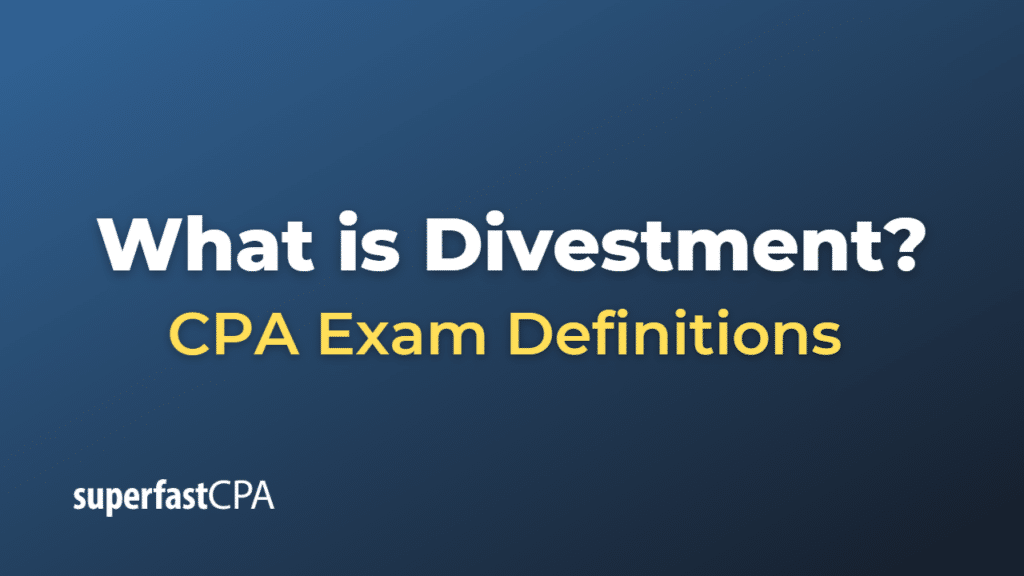Divestment
Divestment, also known as divestiture, is the process by which a company sells, liquidates, or otherwise disposes of a business unit, subsidiary, or asset. This strategy is typically employed when a company determines that the asset, division, or subsidiary in question is no longer aligned with its long-term goals, is underperforming, or would be more valuable if operated by another entity.
Divestments can take several forms:
- Sale of Assets: A company may choose to sell certain assets, such as property, plant, or equipment, to another company. This is usually done when the assets are no longer necessary for the company’s operations or if they’re underutilized.
- Spin-off: A company can create a new, independent company from an existing division or subsidiary. The new company’s shares are then distributed to the existing shareholders of the parent company.
- Equity Carve-out : A company may decide to sell a portion of the equity of a subsidiary to the public via an initial public offering (IPO), reducing its ownership stake but typically maintaining controlling interest.
- Split-up: A company can break itself into two or more standalone companies, which may then operate independently or be acquired by other companies.
Divestment can help a company raise capital, refocus on its core business, reduce complexity, or eliminate underperforming or non-core assets. However, divestments also require careful planning and execution, as they can be complex and disruptive to a company’s operations. In some cases, divestments are driven by regulatory requirements or antitrust considerations.
It’s also worth noting that “divestment” can refer to an investment strategy where investors decide to reduce their holdings in a specific company or sector, often for ethical, environmental, or social reasons. A well-known example of this is the fossil fuel divestment movement, where investors are encouraged to reduce or eliminate their investments in fossil fuel companies due to concerns about climate change.
Example of Divestment
Let’s consider two examples:
Corporate Divestment Example:
Assume Company ABC is a conglomerate with operations in various sectors including technology, automobiles, and clothing. However, after some analysis, the management realizes that the clothing division is underperforming compared to the other sectors and is no longer aligned with the company’s long-term strategic goals.
The company therefore decides to divest the clothing division. They might do this by selling the division to another clothing manufacturer. Alternatively, they could turn the clothing division into a standalone company in a process known as a “spin-off”, distributing shares of this new company to the current shareholders of Company ABC. This way, the company can focus more on its core businesses in technology and automobiles.
Investor Divestment Example:
Let’s take the case of an investment fund that has a portfolio of different stocks including those of oil and gas companies. However, in response to concerns about climate change and pressure from its stakeholders, the fund decides to divest from fossil fuels.
To do this, the fund sells its shares in the oil and gas companies and uses the proceeds to invest in other companies or sectors, such as renewable energy. This type of divestment is often part of a broader investment strategy known as socially responsible investing or environmental, social, and governance (ESG) investing.













